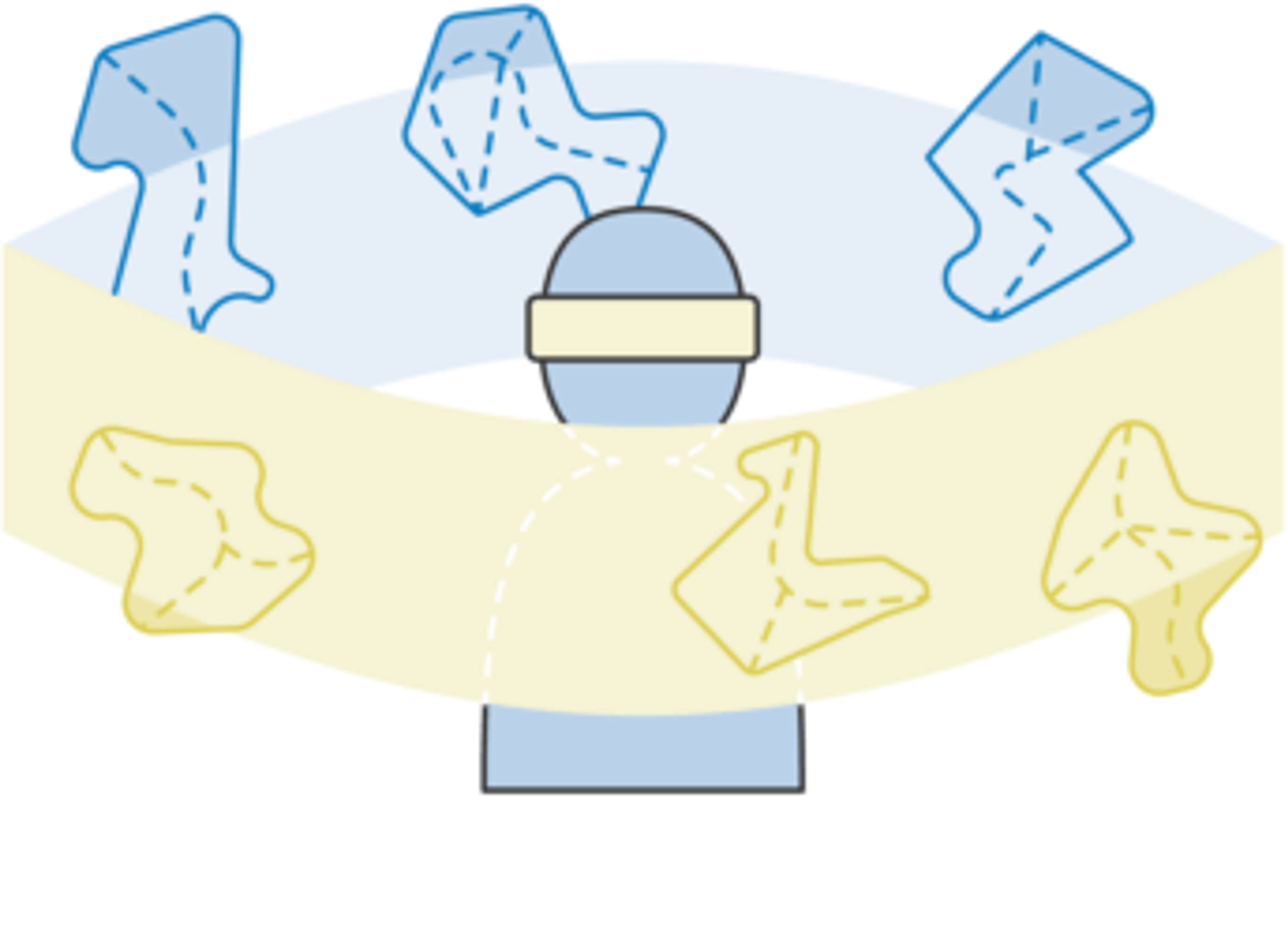Metaverse

The metaverse is a network of interconnected three-dimensional spaces that together form a platform-independent ecosystem comparable to our physical world. Digital and physical experiences are intertwined. As a result, the metaverse provides companies and brands with opportunities to interact and exchange new brand experiences with their targets.
The term metaverse, or metaversum, dates back to 1992, the year Neal Stephenson published his science fiction novel Snow Crash, in which people interact with each other in a three-dimensional space that serves as a metaphor for the real world. What Stephenson probably didn't foresee was that three decades later many people would spend far more time in front of their screens than anywhere else. The rise of the Internet has a lot to do with this. This worldwide web can be seen as a digital space in which people gather around common interests and activities.
At the moment, this digital space still has few of the characteristics of the real world in which we live. The Internet is a largely two-dimensional space, centred on Internet-specific patterns and actions. This may be changing with the emergence of what is now known as the 'metaverse'.
To help concretise the term 'metaverse', reference is often made to Second Life. Even if, according to the definition above, this game does not meet the criteria, it does illustrate what we think of when we think of the metaverse: a virtual social network in which users can profile themselves and communicate as humans, but also build and do things that are impossible in real life.
According to some analysts, the birth of the metaverse goes hand in hand with the emergence of cryptocurrencies. They see people in the metaverse participating in a virtual economy, in which new forms of money and digital property play an important role. Other emerging technologies may also play a role in realising the metaverse, including digital identities and artificial intelligence.
It is important to understand that the metaverse is not yet complete. It is a future prospect, and initiatives around this theme are still in their infancy. Much of what is said and written on the subject is speculative: it should therefore be seen as a school of thought.
However, this does not mean that nothing has yet been set in motion. There are various platforms that have added metaverse-like properties to their virtual environments. Think of Fortnite, where people can watch a movie or go to a concert together. Or Minecraft, where people get together to shape their environment, Axie Infinity, where people experiment with new forms of digital property, or Facebook's Horizon virtual reality network, where people are encouraged, along with their friends, to create their own world.
Brands are also experimenting with the metaverse. Think of Gucci, which has created a virtual space on Roblox called 'the Gucci Garden Experience'. Some of the items in question have been resold for thousands of dollars, at prices comparable to those of real Gucci bags. At the other end of the spectrum, Heineken is showing us with a launch campaign for a virtual beer that, until further notice, not all real world experiences can be replaced in the metaverse.

